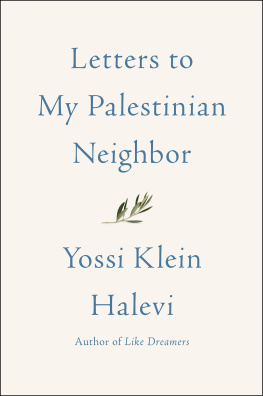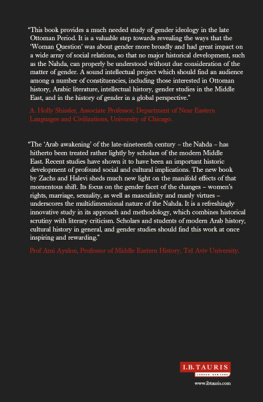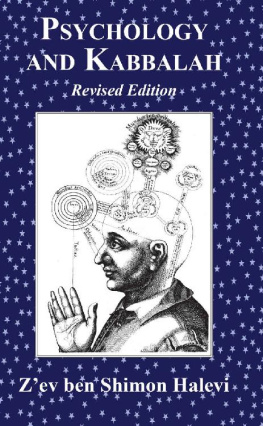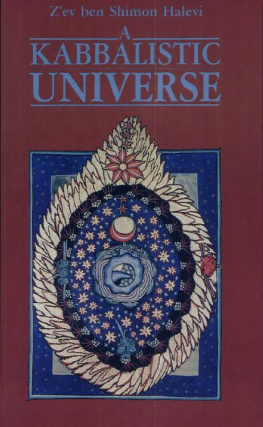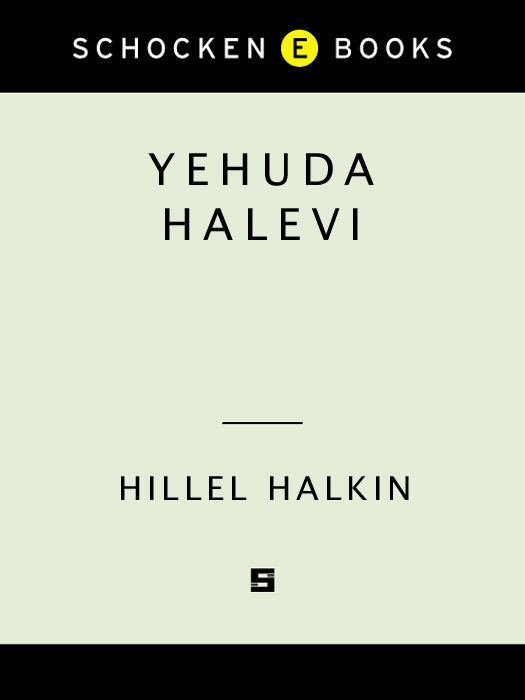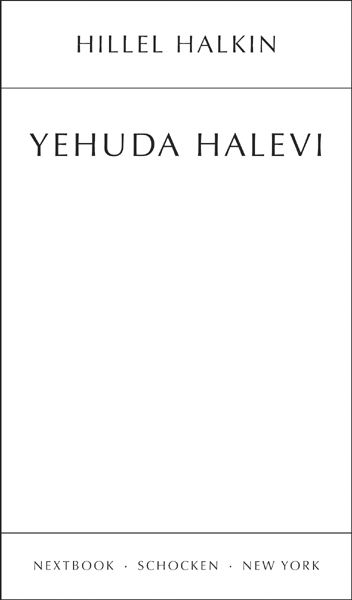FORTHCOMING

THE CAIRO CENIZA Adina Hoffman and Peter Cole
THE WORLDS OF SHOLOM ALEICHEM Jeremy Dauber
MOSES Stephen J. Dubner
BIROBIJAN Masha Gessen
JUDAH MACCABEE Jeffrey Goldberg
BURNT BOOKS Rodger Kamenetz
THE DAIRY RESTAURANT Ben Katchor
THE SONG OF SONGS Elena Lappin
ABRAHAM CAHAN Seth Lipsky
THE EICHMANN TRIAL Deborah Lipstadt
SHOW OF SHOWS David Margolick
JEWS AND MONEY Daphne Merkin
DAVID BEN GURION Shimon Peres and David Landau
WHEN GRANT EXPELLED THE JEWS Jonathan Sarna
HILLEL Joseph Telushkin
MESSIANISM Leon Wieseltier
CONTENTS

Yehuda Halevi
1

I t may be the only time on record when a young man in a tavern has insisted, not that he was old enough to drink, but that he was not old enough to stop drinking.
It happened in Andalusia, in the Muslim-ruled south of Spain. We cant say exactly where. It could have been in Crdoba, or in Granada, or in Seville, or in any of the other towns that the young man passed through and lived in after leaving the Christian north as an adolescent. We cant say exactly when it happened, either. Since the young man was born sometime between 1070 and 1075, we know only that it was toward the end of the eleventh century. This was a timea thousand years after the destruction of the Second Temple, eight hundred years after the redaction of the Mishnah, and five hundred years after the compilation of the Babylonian Talmudin which 90 percent of the worlds Jews lived in a Muslim expanse that stretched from the Atlantic coasts of Spain and Morocco to the Indian subcontinent, and from Yemen to the Aral Sea. Andalusia was in the far northwestern corner of this vast territory, pressing against and pressed back on by Christian Europe. It had been a part of the Islamic realm ever since Arab and Berber warriors from North Africa stormed the Straits of Gibraltar in 711 and conquered most of Spain.
If the night was warm and rainless, as most Andalusian nights are, the young man was probably sitting at a table out-of-doors, in an interior courtyard of the sort still found everywhere in the south of Spain. (What tourist to the region has not seen, on a street of seemingly plain houses, a door swing open and shut on a gardened patio like the tantalizing flash of a secret existence?) Perhaps, if it was springtime, a blossoming orange or lemon tree gave off its sweet-and-sour scent. The young man was unlikely to have been drinking alone, since he was too popular to be left by himself for long. From a neighboring table, an admirer sent a jug of wine. The young man thanked him with a poem. It may have been written afterwards and delivered by a messenger. Yet judging by the young mans gifts and the art of poetic improvisation in Muslim Spain, it was most probably composed on the spot and carried back by the waiter who had brought the wine. It went, in a free English translation:
I shall sing your praise all my days
For the nectar you sent for my lips.
Brother Jug joins in my lays,
And from him I wont cease my sips
Even though all my friends say, Come, come!
How much longer will you play the rake?
What? Ill reply. I have Gileads balm
And shant drink to cure every ache?
Im too young to put down the cup
Ive only begun to pick up. To and for
What end should I stop
When my years are not yet two and four?
In Hebrew, the language in which this poem was written, the young mans punning avowal that he was under twenty-four (which need not mean he was twenty-three; he could just as well have been sixteen or seventeen) works differently from my English rendition. Traditionally, each of the Hebrew consonants has a numerical value, and the word kad, jug, is composed of the letters kaf, which stands for twenty, and dalet, which stands for four. Literally, then, the poems last two lines read:
And how can I give up the kad [jug]
When my years have not yet reached kad [twenty-four]?
Its pun aside, the young mans poem obeyed complex rules, since not only was the Hebrew verse of his day required to have meter and rhyme, its standards for both were more stringent than those of formal English poetry. Regardless of its length, a poem in the classical style was allowed only a single mono-rhyme, with which each of its lines had to end. When it came to meter, on the other hand, a poet had to choose among a dozen possible patterns, each consisting of a rigidly adhered-to alteration of long and short syllables. For this particular poem, the young man chose the meter, known as the marnin or allegro, short-long-long-long, short-long-long-long, short-long-long, a single sequence of which made up the half-lines or hemistiches into which each of the poems full lines was divided.
Dashing off, amid the hubbub of a tavern, a poem so demanding yet wittily accomplished would have been an impressive feat. It would not have ranked, however, as a singular one. Talented poets in Andalusia were expected to do such things. It is told of Shmuel Hanagid (9931056), the first of the great Hispano-Hebrew poets, that he once had quoted to him a couplet on the subject of biting into an apple. Not to be outdone, he proceeded to compose, one after another, fifteen short but perfectly constructed poems on the same theme before running out of time, breath, or inspiration.
Indeed, if calling an age poetic refers, not to some supposed collective sublimity or imaginativeness of mind, but, more mundanely, to the widespread use of poetry in ordinary life as a medium of communication and social exchange, the young man was born in one of the most historically poetic of ages. When, for instance, the same Shmuel Hanagid decided one spring day in Granada to throw a party for his friends, the invitations he sent out were in the form of a poem telling them to Take note, make haste, and do not fail / To gather in my garden. But this would have been only the beginning. Hanagids invitees might have informed him of their acceptance by sending him a poem in return; some might have turned up at his door with poems as gifts; if there were toasts or speeches, these would have been in poetic form, too; any party games played would have included competitions in which the guests were asked to write a poem on the same theme or having the same formal properties; and a good time having been had, poems would be sent as thank-you notes. It was a world in which, in cultivated circles, no solemn occasion and no occurence of note went without a poem to commemorate it; in which friends wrote each other letters in poetry or, if they were in a hurry, in a more easily composed rhymed prose; in which the ability to pen a creditable poem was considered as indispensable a part of an education as filling out a job application is in our own age. A poet who was more than merely creditable was a sought-after figure, often supported by wealthy patrons for whom he wrote verse to order.




